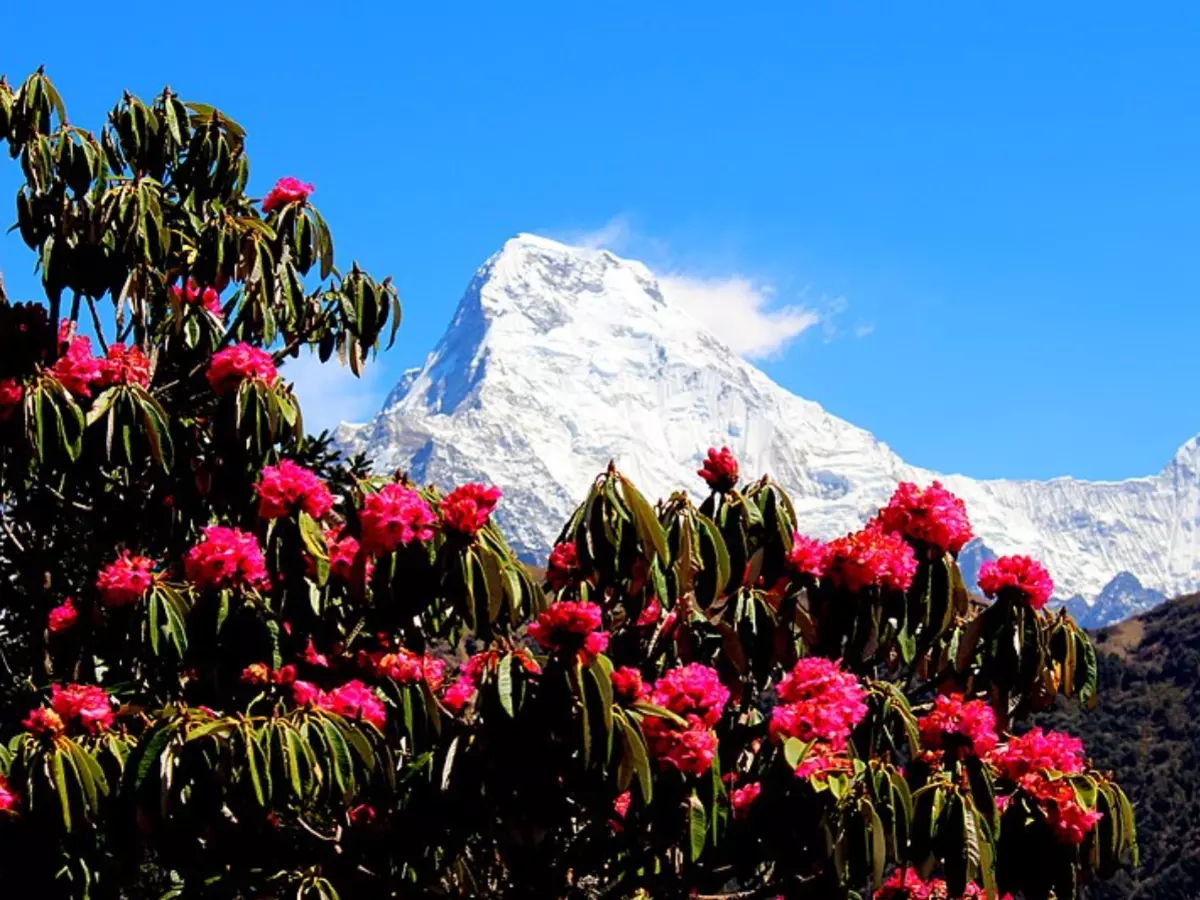Why Early Blooming Of Rhododendrons Is A Bad News For Bumble-bees & Butterflies In Himalayas
The blooming of rhododendrons heralds the onset of spring in the Himalayas but due to global warming the shrubs are now seen blooming as early as January. The blooming celebrated as flower day phool sankranti across the Himalayan state marks a special day for the locals. There is an old belief in the hills that early blooming affects the crop cycle and predicts a scorching summer.

In the months of spring, the mountains of the Himalayas take on a reddish hue. The blooming of rhododendrons heralds the onset of spring in the Himalayas, but due to global warming, the dark green shrubs are now seen blooming as early as January.
The blooming, celebrated as flower day (phool sankranti) across the Himalayan state, marks a special day for the locals.
The month-long Phool Dei is celebrated in mid-March. Children go house to house in the village and place flowers on the gate or entrance of the house.
Why are rhododendrons blooming early?
The blooming of Rhododendron two-three months early, due to an unusually warm spell, could be a result of climate change, warn some researchers.
Villagers often welcome the blooming of the state flower as it indicates the end of bitter winter. But, there is an old belief in the hills that the early blooming of Burash' affects the crop cycle and predicts a scorching summer.
Rhododendron blossom, Rhododendron arboretum, is a small evergreen tree locally known as buransh.
 Pink rhododendrons in Chopta, Uttarakhand
Pink rhododendrons in Chopta, Uttarakhand
Rhododendron, meaning "red trees", is found mainly in Asia. It is the national flower of Nepal and the state tree of Sikkim and Uttarakhand in India. The pink rhododendron is the state flower of Himachal Pradesh.
Early blooming impacts the life of bees, butterflies, and other insects
The flowers have long been used in traditional medicine. Interestingly, in the language of flowers, the rhododendron symbolises danger and beware.
But with the changing climate and early onset of summers, the protected trees are not only threatened but are also impacting the life of small insects, birds, and bees that depend on the flower for food.
According to RS Agarwal, director, GB Pant National Institute of Himalayan Environment (GBPNIHE), the early blooming impact would be felt not just on the flowers but on various wildlife species like butterflies, bumble-bees, insects, and birds which thrive on these flowers for food, pollination, birthing, etc.
 File Photo
File Photo
"If the butterflies come for food in March and April and find nothing on trees, then their entire health and the reproductive cycle will be impacted or they might change their location for food," he added.
Rhododendrons could move to a higher altitude to escape heat
Research also suggests that the R. arboreum is likely to move towards higher elevations in Himachal Pradesh and Uttarakhand to cope with climate change.
Present throughout the Indian Himalayan region, R. arboreum is a culturally and ecologically important tree rhododendron species occurring at an altitude of 1500-3300 metres. ¡°In an extreme climate change scenario, a raised temperature condition could favour R. arboreum to expand its distribution above 4,500 metres by 2,070 in western Himalayas. Our modelling finds that average annual rainfall has a profound effect on its distribution,¡± said study author R.M. Panda of IIT Kharagpur.
Tree rhododendrons are listed as endangered in southern India, as vulnerable in Sri Lanka and northeast India, and as threatened in the north-western part of its native range, including parts of India and Pakistan.
Rhododendron needs a temperature of 15-20 degree Celsius to bloom, which is the average temperature in the months of March and April in the middle and higher reaches of the Himalayas.
 File Photo
File Photo
But, for the last few years, the winter months have recorded high temperatures leading to the early flowering.
This phenomenon was first noted in a 2014 study, which, based on real-time field observations from 2009-11, showed peak flowering of rhododendrons from early February to mid-March. Earlier, the full bloom used to be from March to May.
Rhododendron isn¡¯t the only tree in Uttarakhand affected due to rising temperature and changing climate. Kaphal (Myrica esculenta), a local tree with edible fruits, has also been bearing fruit three-four months earlier.
In the adjoining hill state of Himachal Pradesh, reports of early flowering of mango and lychee trees are pouring in.
Uttarakhand's state flower, Brahmakamal, is also reeling under the effects of climate change and is flowering early in the upper reaches of the Himalayas.
For more on news and current affairs from around the world, please visit Indiatimes News.
